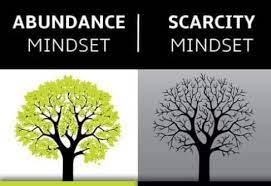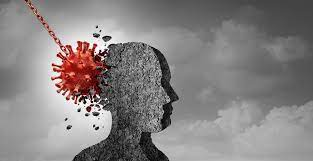How the Chalice Was Poisoned
Rev. Richard Trudeau
It started with a mental virus.
By a "mental virus" I mean a bad idea that becomes widespread. For example, for several years in the 1980s there were pictures of missing children on milk cartons. It had been determined (true) there were thousands of missing and presumably kidnapped children in the U.S. But publicizing their pictures was revealed to be a bad idea when a few people went beyond their feelings, investigated, and learned that virtually all of these children had beentaken by a parent during a custody battle.
In the 1990s another mental virus emerged, and I believe this is the root of the turmoil in Unitarian Universalism. The bad idea was--and is--that in the U.S., racism is at crisis level. This was proclaimed by, among others, the Rev. Al Sharpton, who thundered that "racism is just as bad as it ever was, it's just gone underground." Though some were skeptical of Rev.Sharpton in view of the fact that his livelihood depended on his ability to detect racism, he attracted many well-intentioned acolytes who did not bother to verify their feelings with reason or evidence.
Who am I, a Person of Pallor, to opine about racism? Virtually all of my ancestors came from France or the British Isles. I don't have the "lived experience" of being black in the U.S. But I have my own lived experience, that of an intelligent, curious, and observant white person who has been paying attention to racism in the U.S. for 72 years.
On the opening day of first grade (I was 5) my mother said to me, "Now, there may be Negro children in your class. If there are, other children may call them [the n-word]. Don't ever say that! It hurts their feelings."
I asked, "Why would kids want to hurt their feelings?"
She said, "Some people think that Negroes aren't as good as other people."
I asked, "Is that true?"
She said, "Of course not."
I remember Brown vs. Board of Education (I was 8), and how horrified I was when I learned that in the South black kids had to go to bad schools. I remember the Montgomery bus boycott, and how it went on for more than a year. I remember the Civil Rights Act, and the Voting Rights Act, and the Fair Housing law. (Years later I served on my city's Fair Housing Commission.)
I have read many dozens of books by African-Americans about what it's like to be black in the U.S.--beginning with Booker T. Washington's Up from Slavery in grade school to, recently, books by Ta-Nehisi Coates, Ibram X. Kendi, John McWhorter, Erec Smith, Thomas Chatterton Williams, and Heather McGee.
To the "woke" I say: When you woke up to the reality of racism in the U.S. I was already awake, and had been for decades.
In the 1990s I was confused when UU officials, whom I now understand to have been victims of the mental virus, started speaking of racism as being at a crisis level. This contradicted my own perception that racism had declined continuously, albeit in fits and starts, throughout my lifetime. In that same decade congregants at the churches I served were telling me that their teenage children considered interracial dating to be "no big deal." (My reaction: "Oh my goodness. How wonderful!")
To investigate what UU officials were saying, I asked three black friends to tell me about their experiences with racism. They all said that racism was real and they had occasionally experienced it, but that it had been only an infuriating inconvenience and not the obstacle it had been for their grandparents. They felt they could live wherever they wanted, date whomever they wanted, and go after any job they wanted.
"What about George Floyd?" I imagine someone asking. Yes, what about George Floyd? On the first anniversary of his gut-wrenching killing (May 25, 2020), I asked a fellow UU minister how many unarmed black people he felt had been killed that year by police. "I understand you probably don't know the exact number," I told him, "but what's your feeling about the range? Did the police kill ten unarmed black people in 2020? Or more like a hundred? Or a thousand? Five thousand?"
"Certainly more than a hundred," he said, "but probably not as many as a thousand. I'd guess something like seven or eight hundred."
The answer is 18, according to the Washington Post, which has been compiling statistics on this matter for several years. The number of unarmed white people killed by police in 2020 was 26. Since there are only one-fifth as many blacks as whites in the U.S., the black killings are definitely out of proportion--one-fifth of 26 would be 5, not 18. Racism certainly explains some of the discrepancy, but other considerations are relevant also--like the fact (it is a fact) that young black men commit more crimes than young white men.
For a quarter-century the idea that fighting racism should be the principal focus of UU social-justice efforts has proliferated among UUA officials and UU ministers. Many of these people, while sincere, tend not to validate their feelings with reason or evidence. Others, I think, are opportunists who, abetted by the UUA's faulty democracy, are exploiting the mental virus, and the shame--and resulting paralysis--that many white people feel about racism, to seize control of the UUA, and to corrupt it into an organization that no longer seeks to serve, but to dominate; that no longer seeks to listen, but to dictate; and no longer seeks to support, but to punish.
This essay is reprinted with permission from the March, 2023 of the
UUMUAC newsletter.





